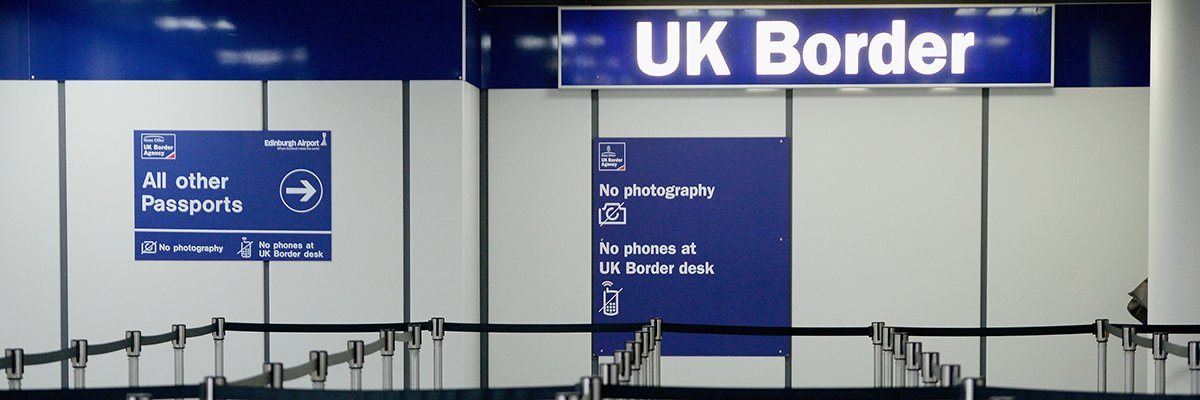A Royal Mail lawyer’s email in 2010 warned Post Office executives of the risks associated with a plan to launch an independent inquiry into its controversial computer system, amid questions over its robustness.
They ended up carrying out a one-sided internal investigation and produced a whitewash report, which only reported Horizon’s advantages.
During the latest Post Office Horizon scandal public inquiry hearing, Rob Wilson, former head of criminal law team at Royal Mail, said he was angry after being left out of the discussions about a potential investigation into accusations that the Post Office Horizon system used in branches was unreliable.
Data from the computer system was used to prosecute subpostmasters, and, as the head of criminal law, Wilson believed he should have been involved in the discussion earlier.
The internal discussions began soon after Computer Weekly had revealed the challenges being made by subpostmasters over Horizon. In the investigation, seven former subpostmasters told stories about how they were blamed for unexplained accounting shortfalls, which said were caused by Horizon errors.
As complaints about Horizon were now in public and other media outlets were showing and interest in the story. The Post Office wanted to provide confidence in the system and executives were discussing an investigation of the Horizon system with external verification for “gravitas”.
The Post Office had been prosecuting for the previous decade based of evidence from the Horizon system, with many serving time in prison. More than 900 subpostmasters in England, Scotland, Wales and Northern Ireland were prosecuted based on evidence from the Horizon system.
This has been exposed as one of the biggest miscarriages of justice in British history, with 93 wrongful subpostmaster convictions so far overturned. In 2019, a group of 555 subpostmasters sued the Post Office in the High Court and proved the Horizon system caused unexplained accounting shortfalls.
The public inquiry has already revealed evidence that the Post Office knew of Horizon problems when it was rolled out in 2000, but constantly told subpostmasters who complained that there were no issues with the software and that they were the only one having problems.
Wilson was responsible for subpostmaster prosecutions, many of which were based on evidence from the Horizon system. But he was originally left out of the email chain regarding setting up a Horizon investigation. On being included in the 2010 email chain, Wilson reacted to the planned investigation into Horizon. He began by stating that if there are integrity issues, an investigation is not only needed, but an imperative, but then gave a long list of reasons why the Post Office shouldn’t do it.
Inquiry barrister Jason Beer KC, put it to Wilson that while his first sentence supported an investigation, his response was actually a list of reasons not to do the proposed investigation: “…the rest of [the email] is a but, isn’t it?”
Beer added: “What you are saying in this email is, ‘The Post Office will be in serious trouble if we get on with this independent investigation into the integrity of Horizon’. You come up with a list of reasons to not even start an investigation.”
Wilson accepted this, but added that it was not his intention: “I think I overreacted to being excluded from what I saw as critical to me as the head of the criminal law team.”
“I think [my email] was just a reaction to having been excluded for what I consider to be very important and basically it was me throwing everything onto the page that I would have probably said in a different way had I been in the meeting.”
He admitted in the inquiry that his response should have only stated the need and importance of an investigation, but in fact the email described, at length, the risks to the Post Office of investigating the Horizon system.
Wilson wrote that the Post Office would not be able to use Horizon data to prosecute subpostmasters while an investigation into its reliability was ongoing: “The consequence [of an investigation] will be that to commence or continue to proceed with any criminal proceedings will be inappropriate.”
In his email, he warned that subpostmasters would use the investigation into the Horizon system to challenge the Post Office if there were shortages in their branches, writing: “The only way they are left to challenge our evidence when they have stolen the money is to blame Horizon.” Wilson justified this line because he was angry when he wrote it and went “over the top”.
He added that an investigation would put ongoing prosecutions at risk of failure: “What is being suggested is an external investigation. Such an investigation will be disclosable as undermining evidence on the defence in the cases proceeding through the criminal courts.
“Inevitably, the defence will argue that if we are carrying out an investigation, we clearly do not have confidence in Horizon and therefore to continue to prosecute would be an abuse of the criminal process,” he added.
Wilson also warned that ongoing legal proceedings may have to be stayed pending, the outcome of the Horizon investigation which would lead to “adverse publicity” and could be seen by the press as vindicating subpostmaster challenges to the system.
His solution was for the Post Office to “impress on Fujitsu the importance of fully cooperating in the provision of technical expertise and witness statements to support the criminal and civil litigation now and in the future”.
The Post Office did go on to investigate Horizon and publish the results through its Ismay report, but this was exposed as a whitewash. The 2010 report, by Post Office’s the head of product and branch accounting, Rod Ismay, lacked objectivity and was designed to report Horizon in a positive light.
Phase three of the Horizon inquiry, in March, was told that Ismay did not even investigate alleged problems with the software, but simply asked the IT team and staff if it was okay.
There were no terms of reference for the report, but it was made clear to Ismay that he should just report on “positive reasons to be assured about Horizon” to give a clean bill of health to the software.
Wilson was giving evidence to phase four of the statutory inquiry into the Post Office scandal which is examining, “Action against subpostmasters and others: policy making, audits and investigations, civil and criminal proceedings, knowledge of and responsibility for failures in investigation and disclosure”.
Earlier in phase four, evidence emerged that the Post Office had to change its prosecution strategy when it was warned, in 2013, that the expert witness from Fujitsu could no longer be used.
It was revealed that the Post Office never replaced its go-to expert IT witness after he was discredited in 2013.
Gareth Jenkins, chief architect at Fujitsu working in the contract with the Post Office to supply and support the Horizon system, was used as an expert IT witness when the Post Office prosecuted subpostmasters, based on evidence from the Fujitsu-made Horizon system.
But in 2013, a lawyer working for the Post Office, Simon Clarke of Cartwright King, said Jenkins should not be used again because he knew of computer errors but, in breach of his duties, failed to reveal them during trials of subpostmasters. Jenkins is currently under investigation for potential perjury.
It was after Clarke’s advice that prosecutions of subpostmasters based on Horizon evidence stopped.
During a public inquiry hearing last week, it emerged that the Post Office tried to find an expert witness to replace Jenkins as a witness to support the Post Offices stance that Horizon was reliable, but was unable to find anyone.
John Scott, former Post Office head of security, told the public inquiry that one of the reasons for ending Horizon-based prosecutions was “because the subject matter expertise within Fujitsu had been discredited”. He added: “…therefore, the Post Office needed to find another subject matter expert to support any evidence.”
Scott said that by the time he left the Post Office in 2016, it had not replaced Jenkins as expert witness.
He said the Post Office had an early meeting with a London university about potentially becoming an expert witness provider, but he doesn’t think it “was progressed thereafter”.
KC Beer said: “So the reason for the cessation of prosecutions was twofold, is this right, on your recollection: firstly, the subject matter expert from Fujitsu had been discredited, according to advice given by Cartwright King; a new expert was needed, but none could be found?”
Scott confirmed this to be correct.
Scott’s evidence session began with Beer KC pointing out that he had failed to mention, in his witness statement, that he was a police officer for seven years before joining the Post Office.
Scott is a controversial former Post Office executive. During a Court of Appeal hearing in 2021, it was revealed that the Post Office instructed employees to shred documents that undermined the integrity of the Horizon computer system. It later emerged that the person responsible for giving instructions to shred documents was Scott.




